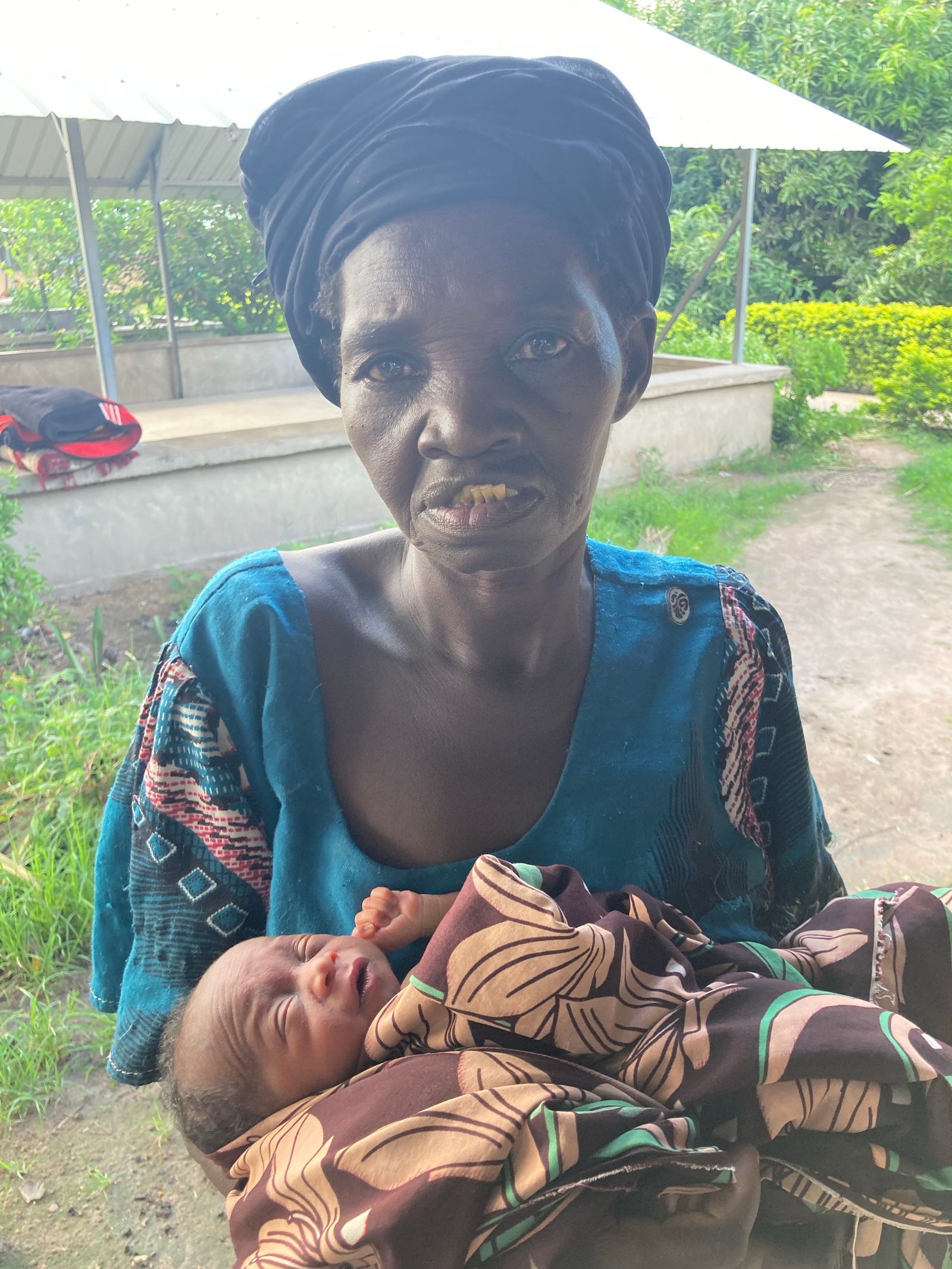Caca
12 Jul 2023

No, American friends, it’s not what you think. Caca is just an endearing Nangjere word for grandma (though all the Nangjere ladies giggle when I use the term, but not for the same reasons a five-year-old child or a five-year-old-at-heart adult might giggle in America). This is a story about a "caca," a cute little old grandma, and her tiny premature grandbaby. Well, it started out that way. Then things went downhill and I was so frustrated and discouraged that I wasn’t even going to tell you about it anymore. Then their story evolved into this saga that demonstrates so much of the ins and outs and ups and downs of working here, that now I have to share it with you after all. Besides I have this cute picture of them that she gave me permission to take and share.
Baby Melka was born early, but thankfully not too early to survive in Chad without NICU care. Though she was supposed to be about 28 weeks, she showed all the signs of being a few weeks older than that but small for her age. Her young first-time mom tried to learn to breastfeed, but struggled a bit with learning to latch. Caca was enthusiastic and instrumental early on in helping her daughter learn. Each day I would weigh baby Melka, and each day she gained a little bit. Her Caca started asking after several days in the hospital about going home. Naomi helped me translate and explained that baby Melka needed to reach 2 kg before she could go home. She was only about 1.6 kg, so she would be here for awhile. But Caca could help! Day and night, she could remind her daughter, bi ka di (don’t give water), and bi kuba beja (breastfeed lots) and if her daughter didn’t give water and breastfed a lot, she would likely grow faster and go home sooner! A few days later, grandma asked about going home again. "What weight did we say, Caca? As soon as she gets to 2 kg!" "I don’t know about weights, all I know is it’s my job to say ‘bi ka di’ and bi kuba, bi kuba, bi kuba!’" Her partially non-occluding jaw (clearly fractured in the past—probably here in Béré where there is no oral maxillo-facial surgeon) wiggled as she grinned and made her case. She won. "You live here in Béré?" "Yes right by the hospital!" "You’ll remind her to keep breastfeeding just as well at home as she has been here, and you’ll make sure NO one gives water at home?" "Yes!" "You’ll come back every day to weigh the baby? EVERY day?" "Yes! Well, I will go to the market tomorrow but my daughter will come with the baby." I considered. I laughed and told Naomi to translate, "Caca has won! I never discharge them this early, but she’s done such a good job, and I believe her that she’ll continue at home!"
She did return for weight checks, and she lost weight. "What happened?!" Caca gave her water at home. Over the next week Melka struggled to gain weight. She got sick. Her skin started peeling like skin after a bad sunburn, so we treated her with IV antibiotics, and her IV catheter site developed an abscess. Her neighbors in the maternity ward started giving her a hard time for leaving the ward frequently and leaving her baby in a bassinet crying by herself. She looked discouraged. We would help her latch and time her breastfeeding to help her have a feel for how long 15 min is and how long 30 min is (since she didn’t have any way of keeping time herself, and Melka, being so little, would fall asleep and need someone to wake her up to feed rather than only feeding on demand). Finally I told her, if she loses again tomorrow, we’ll have to place an NG tube to help her grow. She didn’t lose, but she didn’t gain either. She stalled at 1.7 kg (3 lbs 12 oz). Finally I started going every three hours to pump the milk with a manual breast pump and gave the milk directly to Melka to quantify how much she was receiving. She started to gain! Every day on rounds I would weigh her and every day she gained! But I saw another change gradually developing every day too—not only for Melka, but for her mom. Her neighbors were no longer judging her for abandoning her baby throughout the day. When she went outside to lie on her mat on the back porch of maternity, Melka got to come along! She would lie next to her baby, watching her and talking softly to her. As Melka started to look more like a healthy baby who could survive here, her mom let herself become more attached, letting down her defensive walls that had been shielding her against the impending loss of her baby. Gradually I helped less and less with pumping and feeding and Melka transitioned back to exclusively breastfeeding directly from her mom. She grew to over two kg and her skin infections were long gone. Finally our "chief of maternity"—as the nurses had jokingly referred to our long-term patient—was able to take her healthy baby home!


